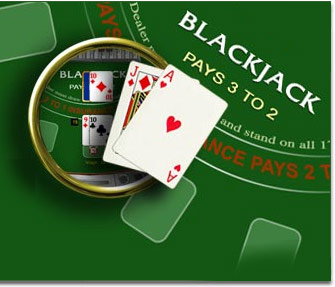Peter Griffin - Blackjack Player
Blackjack Expert Peter Griffin
A Profile of Peter Griffin
Born in 1937, Peter Griffin was a mathematical genius who first took the "shortcuts" developed by statisticians for estimating answers to highly complex problems and applied them to blackjack card counting systems.
The grandson of noted mathematician, Frank Loxley Griffin, Peter was the first to distill the potential gains available from any card counting method into two distinct prime factors: the Betting Correlation (BC) and the Playing Efficiency (PE). These two parameters allowed for a very accurate estimation of any system's potential win rate in any game using any betting spread, without the reliance on extensive computer simulations.
He also described how such methods could be used to evaluate the differences between single-level and multi-level counting systems.
Griffin received his baccalaureate degree from Portland State University and his Masters degree from the University of California. In 1965, he took a teaching position at California State University, teaching statistics, calculus and differential equations. He held that position until his untimely death from prostate cancer on October 18th, 1998, at the age of 61.
Among his many accomplishments, Griffin conducted a thorough survey of the American public's ability to successfully play blackjack and how Atlantic City players stacked up against Las Vegas or Reno blackjack players. He studied the casino blackjack areas, notepad in hand, grading the gambler's play against perfect mathematical strategy.
While incredibly time consuming, this mammoth project allowed the gambling industry to know that an average blackjack player has about a 2% disadvantage to the casino.
Since he once said that his first love was teaching, it's not surprising that Griffin also taught a course on the Mathematics of Gambling at the Harrah's Institute of Casino Entertainment. He taught about 20 of these courses over the course of his life, keeping students spellbound with his tales of gamblers, casinos, and card-counting.
In 1978, he authored The Theory of Blackjack: The Complete Card Counter's Guide to the Casino Game of 21. The book was a milestone for system researchers, developers, and players. In fact, many consider it to be the most important analysis of card counting systems since Edward Thorp's Beat the Dealer.
Designed for the serious player who could handle college-level math, Griffin's book included such topics as:
- the definitions and analysis of basic strategy
- approximating bet and strategy variation,
- single parameter counting systems,
- multiparameter counting systems,
- the importance of grouping cards
- insurance
- distribution of probability
- likely consequences of errors in counting systems, and betting gain in two-four decks.
It was also packed with charts, tables and formulas for almost every variation.
In 1991, Griffin followed up his landmark book with Extra Stuff: Gambling Ramblings. This book addressed many of gambling's more abstract concepts, such as proportional wagering, considerations for games with variable payoffs, and the effects of rebates on losses.
Ever since his first book in 1978, blackjack researchers have been using Griffin's methods. Any proposed card counting system, regardless of its level of complexity, can quickly be broken down to its BC and PE, allowing its comparative value to other systems and methods to be determined.
He also published dozens of technical papers in mathematical journals and at academic conferences, all gambling related.
He was a bicycling enthusiast, as well as an avid hiker (once walking the width of the Grand Canyon, from the north rim to the south rim, in a single day). He also enjoyed traveling the world with his wife, Lydia, learning to speak passable Spanish, German, and Italian in the process. In recognition of his vast contributions to the world of gambling, Griffin was made an inaugural member of the Blackjack Hall of Fame in 2003.
More Blackjack Players: Stanford Wong - Hollywood Dave Stann - Sam Vaughn - Edward Thorp - Cathy Hulbert - Michael Konik - Keith Taft - Anthony Curtis - Peter Griffin - Ken Uston - Richard Munchkin - Ken Einiger - Tommy Hyland - Al Francesco - Eleanore Dumont - Ken Smith - Lawrence Revere - Steve Forte - Barry Meadow - Brian Zembic - Big Chuck Gorson - Erica Schoenberg - James Grosjean - Max Rubin - Henry Tamburin - Russ Hamilton - Jimmy Pine - Joanna Wlodawer - Joe Pane - Kevin Blackwood - Blackjack Hall of Fame - MIT Blackjack Team


 Slots Capital
Slots Capital


